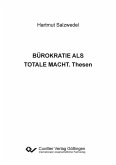We need a new and comprehensive understanding of suicidal patients, the message their behaviour emits and the best way to establish a therapeutic relationship.Statements containing suicidal tendencies should not be interpreted as signs of an imminent collapse, but rather as extreme messages of the person's mental state. Suicidality has two important functions: to secure the object and to change the object.Based on his long experience in the psychotherapy of suicidal patients, Jürgen Kind presents a new and comprehensive understanding of the message contained in patients' behavior. This enables establishing a working relationship in which suicidal tendencies become part of the communication.
Dieser Download kann aus rechtlichen Gründen nur mit Rechnungsadresse in A, B, BG, CY, CZ, D, DK, EW, E, FIN, F, GR, H, IRL, I, LT, L, LR, M, NL, PL, P, R, S, SLO, SK ausgeliefert werden.









